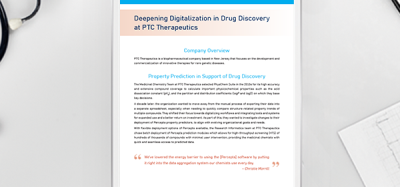Anti-TNFα therapy may help reduce risk of developing Parkinson’s disease
Posted: 23 April 2018 | Dr Zara Kassam (European Pharmaceutical Review) | No comments yet
Mount Sinai shows the potential link between Parkinson’s disease and inflammatory bowel disease, suggests anti-TNFα therapy may reduce the risk of developing Parkinson’s…


A recent study provides new insights into a link between inflammatory bowel disease (IBD) and Parkinson’s disease and may have significant implications for the treatment and prevention of Parkinson’s disease.
The recent study shows that individuals with IBD are at a 28 percent higher risk of developing Parkinson’s disease than those without IBD. However, if they are treated with anti-Tumour Necrosis Factor-alpha (anti-TNFα) therapy, a monoclonal antibody that is commonly used to control inflammation in IBD patients, then their risk of developing Parkinson’s disease goes down significantly and becomes even lower than that in the general population.
Our findings provide promising insights that support further investigations into how reducing systemic inflammation could help treat or prevent Parkinson’s disease
These new insights will allow for better screening of IBD patients for Parkinson’s disease, given that IBD onset usually precedes that of Parkinson’s disease by decades, and they also offer evidence to support exploring anti-TNFα therapy to prevent Parkinson’s disease in at-risk individuals.
While previous research had shown genetic and functional connections between IBD and Parkinson’s disease, clinical evidence linking the two has been scarce. The authors of the study previously identified a number of genetic variants that contributed to either an increased risk of both Parkinson’s disease and of Crohn’s disease, a type of IBD, or a decreased risk of both diseases, which prompted them to further study the co-occurrence of the two diseases.
“Systemic inflammation is a major component of IBD, and it’s also thought to contribute to the neuronal inflammation found in Parkinson’s disease,” explained Inga Peter, Professor in the Department of Genetics and Genomic Sciences at the Icahn School of Medicine, Mount Sinai and lead investigator in the study. “We wanted to determine if anti-TNFα therapy, could mitigate a patient’s risk in developing Parkinson’s disease.”
The Mount Sinai team found a 78 percent reduction in the incidence of Parkinson’s disease among IBD patients who were treated with anti-TNFα therapy when compared to those who were not.
It was previously thought that anti-TNFα therapies had limited effects on the central nervous system, the site where molecular mechanisms of Parkinson’s disease are found, because the large molecules in the anti-TNFα compounds cannot independently pass through the blood-brain barrier. The outcomes of this study suggest that it may not be necessary for the drug to pass through the blood-brain barrier to treat or prevent inflammation within the central nervous system, or that the blood-brain barrier in patients with IBD may be compromised, allowing the large molecules of the compound to pass through.
Parkinson’s disease ranks among the most common late-life neurodegenerative diseases, affecting approximately 1-2 percent of people 60 years or older. “Current therapies for Parkinson’s disease focus on ameliorating symptoms,” said Prof Peter, “Our findings provide promising insights that support further investigations into how reducing systemic inflammation could help treat or prevent Parkinson’s disease.”
The study has been published in JAMA Neurology.
Related topics
Clinical Development, Drug Targets, Research & Development (R&D)









